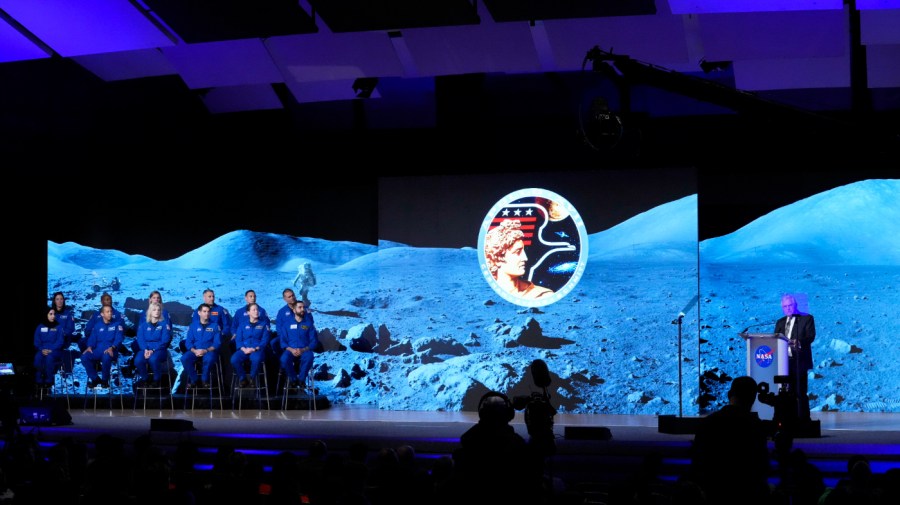With NASA having selected two Japanese astronauts to fly on Artemis missions to the moon, speculation abounds about which other country will get a ticket to walk on the lunar surface. Recent world events and the technological acumens of countries in the region suggest the next non-American moonwalkers should be from the Middle East.
I proposed an Artemis mission to the moon including an astronaut from Israel and one from the United Arab Emirates some years ago in the wake of the Abraham Accords establishing peace between the Jewish state and several Muslim countries.
Both Israel and the UAE have potent technological sectors, especially aerospace.
Both countries have flown probes in space. Israel attempted a moon landing with the failed Beresheet mission. It is now attempting a follow-up mission, the Beresheet 2. The UAE included the Rashid lunar rover on the failed iSpace Hakuto-R M1 mission and is planning to send Rashid-2 to the moon. A UAE probe dubbed Hope currently orbits Mars.
Israel and the UAE have had astronauts fly on NASA missions. Israeli astronaut Ilan Ramon died aboard the Columbia space shuttle mission in 2003. UAE astronaut Sultan Alneyadi spent a six-month tour aboard the International Space Station.
Both countries are providing useful contributions to the Artemis program. Israel provided an anti-radiation vest that was tested on the Artemis I mission. The UAE is building an airlock for the lunar gateway space station.
An Artemis mission that includes an Israeli and an Arab astronaut would send a powerful message to the region that peaceful relations instead of endless conflict is the path toward prosperity and technological advancement for all people, Jewish and Arab, living in the Middle East.
As I proposed in the past, it could feature a landing site with the American, Israeli and UAE flags raised side by side and invoke images of Buzz Aldrin’s iconic U.S. flag salute during his moonwalk.
Recent events in the Middle East and the reaction to them globally suggest that a joint American-Israeli-Arab mission to the moon is needed now more than ever.
The events in the Middle East that started with the Hamas terrorist attack on Oct. 7, have sparked worldwide protests. Recently, the protests are not so much against the atrocities committed that day, but against the Israeli response designed to destroy Hamas and rescue as many of their hostages as they can.
Protesters’ actions have ranged from calls for a “ceasefire” (i.e. for Israel to stop destroying Hamas) to repeating slogans calling for the annihilation of the State of Israel, a nation of 9 million people. The latter was done by many of the same people who accused Israel of committing “genocide” in Gaza.
Things have gotten so bad, that protestors on some Ivy League college campuses have reportedly physically intimidated and even assaulted Jewish students.
Much of the problem stems from the ignorance many of the protestors have about Israel, its history and its culture. They have likely not been to Israel or interacted peacefully with its people. The book, “The Genius of Israel,” which includes a chapter on that country’s space program, is an excellent resource about the modern Jewish state.
The ignorance is not just caused by social media disinformation. The news media rarely reports on Israel outside of its conflicts with the Palestinians. Israel is a far more complex and fascinating country than many people on both sides realize. Its space, government and commercial sectors are especially vibrant for such a small country.
NASA’s mandate does not include solving the problems in the Middle East. But flying an Artemis lunar mission with an Israeli and an Arab astronaut can force the media to focus on the positive aspects of Israel and its relations with its Arab neighbors.
Israel has been called “the start-up nation” and the “Silicon Valley of the Middle East.” Its relationship with most of its neighbors is that of a trading and security partner, not as an antagonist and certainly not as an oppressor.
Make money, not war is now the rule for Israel and its Arab partners, as the recent Israeli-UAE free trade pact demonstrates. It’s one those young people creating such mayhem should take to heart, not to mention the Palestinians they claim to support.
A joint American-Israeli-Arab Artemis lunar mission could help them do so, and to realize that a better future is possible in the Middle East and beyond.
Mark R. Whittington, who writes frequently about space policy, has published a political study of space exploration entitled “Why is It So Hard to Go Back to the Moon?” as well as “The Moon, Mars and Beyond,” and, most recently, “Why is America Going Back to the Moon?” He blogs at Curmudgeons Corner.
